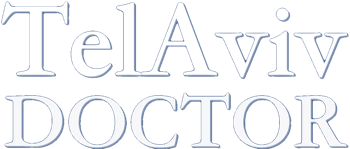According to a study run by The National Centre for Health Statistics in 2016, 73.9% of physician office visits were concluded with a prescription for some form of drug therapy. From this statistic it is apparent that overall, prescription medication continues to be the dominant form of treatment. Undoubtedly, for specific conditions, prescription medication is unequivocally the best form of treatment. However, in many cases, non pharmaceutical alternatives may work just as well, or possibly even better than their pharmaceutical counterparts.
Issues With Prescription Medication
One issue that arises in the common use of pharmaceutical medication is that often it is taken for much longer periods of time than intended for or necessary. Ideally, pharmaceutical medication should only be prescribed when absolutely necessary, with the intention of use for a specified time frame. This is because nearly all prescription medications have side effects – ranging from moderate to severe. In addition to this, many prescription medications possess addictive qualities, running the risk of drug dependencies. Finally, the course of many chronic illnesses is not affected by the medications per se. Medications mostly suppress the effects of the illnesses without addressing the underlying causes.
Another problem that arises from medication use may be understood through the term ‘Prescription Cascades’. This describes the phenomenon of additional medication being prescribed as a misdiagnosis of, or else simply to counterbalance the side effects of current medications .This results in patients taking multiple prescription medications, and creates a perpetual cycle of further, possible misdiagnosis and prescribing of medications. Elderly people are particularly vulnerable to this.
Alternative Treatments
For those exploring substitutes to prescription medications, there are various forms of Alternative Treatments that are known to be beneficial in remedying a range of conditions. Common alternative treatment options include:
- Acupuncture – for treating migraines, chronic pain & musculoskeletal conditions
- Homeopathy – for treating asthma, allergies, skin conditions & arthritis
- Osteopathy – for treating back/neck pain & arthritis
- Massage, Shiatsu – for reducing stress, tension & for relieving pain
Whilst helpful to many, it should be noted that Alternative & Complementary Treatments are not backed up by Scientific or evidence based research. This is partly due to the component of a ‘Placebo Effect’ with these treatments (the expectation that a treatment will be effective, that causes one’s condition to improve). There are also reasons as to why research has not been done on a large scale – if a treatment is past its patent then it may not be economically viable to research due to the immense costs of proper research.
Despite this, many Medical Practitioners are in favour of alternative treatments, provided they are practised safely and are overseen by Medical Personnel.
Herbal Remedies
There is a large selection of Herbal Remedies available to use for medicinal purposes. Some well known Herbal Remedies include:
- Echinacea (for strengthening the Immune System)
- Ginseng (for elevating energy levels & reducing blood sugar)
- St. John’s Wort (for treating depression & anxiety – quite good evidence)
- Ginkgo Biloba (for increasing blood flow & reducing inflammation)
- Evening Primrose (for PMS & skin conditions).
There are many anecdotes (considered weak evidence) that back up the benefits of these herbal remedies.
Mindfulness, Nutrition And More
Physical activity, healthy eating, quality sleep, yoga, meditation & mindfulness are all excellent and crucially important ways to remain healthy and feel well. – In essence, these practices can prevent illness and assist in avoiding the need for medications. Social Prescribing (which relates to specialised group therapies) is another proven, effective alternative to pharmaceutical medication.
To learn more about this vast topic, we recommend this article discussing the benefits of exercise, diet and lifestyle changes for prevention and management of chronic illness, published by Harvard Health Publishing.
Medical Treatments At Tel Aviv Doctor
From this brief explanation regarding alternative options to traditional remedies, it is apparent that alternative remedies deserve a higher place within traditional Western Medicine and that more research is needed.
At Tel Aviv Doctor, both prescription medicine and non pharmaceutical options are combined to create a joint medical & holistic treatment approach. Sleep Therapy and Intravenous Vitamin Infusions can be incorporated in patient’s care plans as alternate forms of both preventive and curative treatment. Get in touch with us now to speak to a doctor and to learn more.
Please note: Precautions must be taken when combining herbal remedies with prescription medications – Special care must be taken, particularly when herbal remedies are taken in conjunction with blood thinning medications, HIV or cancer drugs. Pregnant & nursing women, elderly people and children are more susceptible to adverse reactions from herbal remedies. Alcohol use may also interfere. Attention should be paid to correct dosing, proper storage and expiration dates of herbal remedies. Although herbal remedies can be bought over the counter without a prescription, it is still important to consult with a medical practitioner before taking or combining these products.



